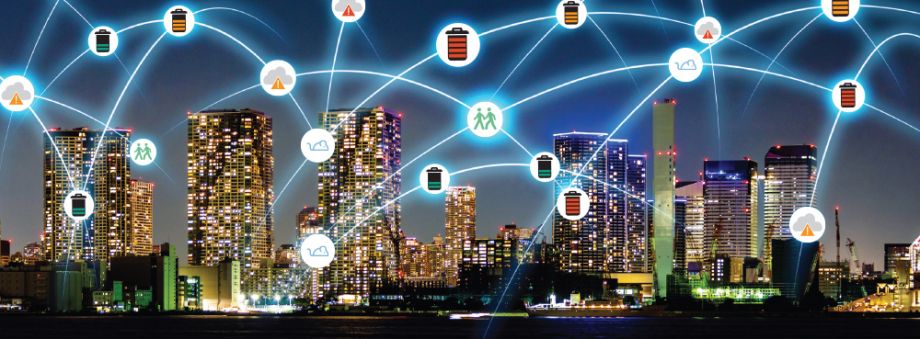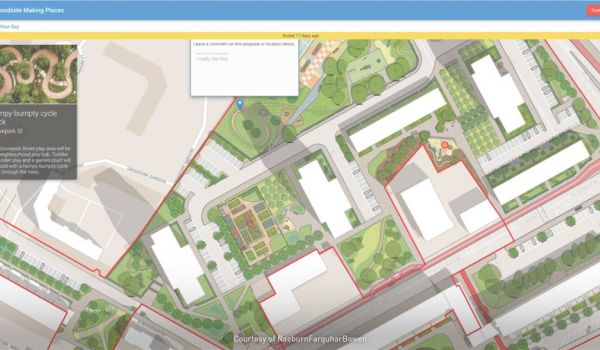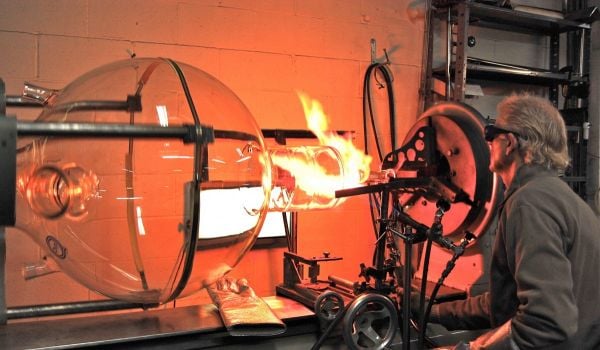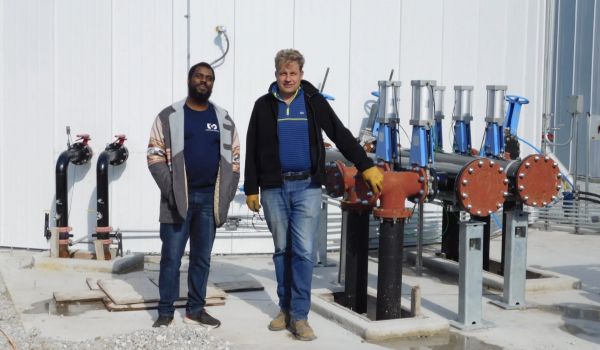When Pittsburgh’s city leaders were tasked with updating their waste collection process to reduce inefficiencies and provide cleaner streets, they turned to a data-driven solution. A solution that fits hand-in-glove with their ambitious goals in the fight against climate change – taking steps towards reducing greenhouse gases, curbing CO2 emissions, increasing renewable energy use, and attempting to achieve Zero Waste.
For the modernization of their trash collection system, the city recognized a significant problem of not knowing which of their 2,000 litter receptacles required collection at any particular time. Without data about fill levels, they had no choice but to drive the full collection routes every day. Inevitably, some containers would be already overflowing by the time the crew arrived, and in other areas, no containers needed collection.
Pittsburgh began implementing the Victor Stanley Relay TM smart waste management system to upgrade to a more efficient waste collection process. Using sensors embedded within their litter receptacles that measure how full the containers are, and then transmit that information to the people responsible for collecting them, the city found a way to create and utilize real-time data – from the very company whose containers were already ubiquitous on the city’s streets. With the Relay system’s built-in GPS used for managing their waste receptacle inventory, the city deployed more than 1,200 Relay containers.
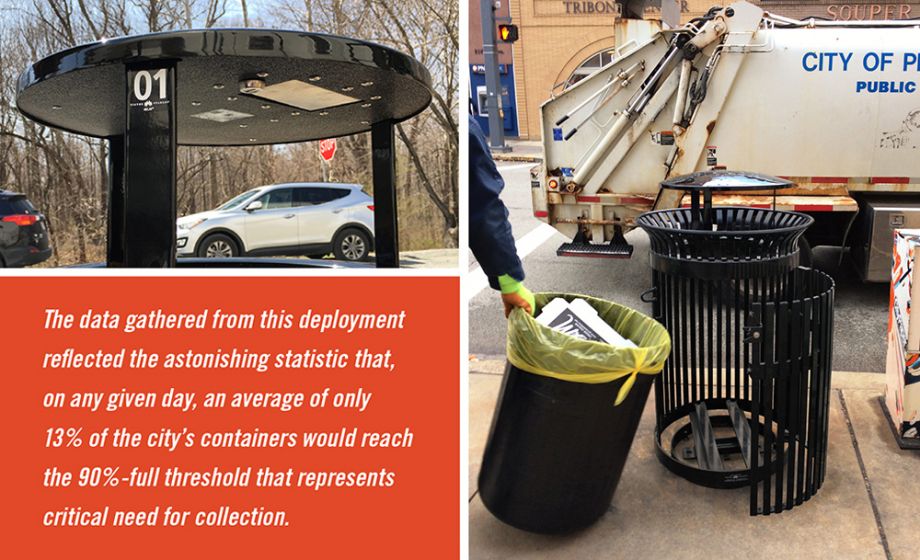
Relay sensor with replaceable batteries embedded within dome lid. Emptying a Relay-enabled SD-42 on a Pittsburgh street. (Photos courtesy Victor Stanley)
A cost savings analysis provided even further justification for collecting only the containers which reach at least 90% full, instead of collecting containers regardless of fill level. The savings analysis shows that the 90% full collection model can achieve an average monthly savings of more than $128,000. This translates to roughly $1.54 million over the course of a year.
“I believe it’s going to be almost a couple million dollars savings.” - Mike Gable, City of Pittsburgh Public Works Director
Equipment depreciation costs are reduced, fuel use is significantly reduced, and the laborers previously making superfluous trips to unfilled containers can be reallocated towards higher priority items instead. Pittsburgh used this data to determine that they could reduce the number of employees occupied exclusively with trash collection from 25 down to 9. Instead of downsizing the department, the other 16 employees are being reassigned to tasks such as “more lot cleanup, more getting into the catch basins, pruning trees, things that have been waylaid for years” according to Public Works Director Mike Gable. “Based on our analysis, we expect that the smart litter cans will give us the ability to make process improvements that will reduce the amount of labor hours spent on emptying garbage cans by at least half,” said Matthew Jacob, a project manager with the city’s Department of Innovation and Performance.
In May 2018, Pittsburgh approved the Climate Action Plan 3.0, which spells out their goals for helping to curb climate change by 2030. Among those goals are a 50% reduction in transportation emissions and reaching Zero Waste throughout the city. To help attain the goal of diverting trash from landfills, Pittsburgh will continue to leverage their existing Relay containers and the data they gather, which measures key factors, including how long it typically takes for containers to fill up, and how often collections are taking place.
The amount of CO2 produced by heavy diesel trucks in Pittsburgh’s fleet that are maintaining a standard waste collection operation – driving to every container – could be reduced dramatically by changing to a more efficient collection operation, where only containers reaching at least 90% full are serviced. This reduction could be as high as 19,000 kg of CO2 per month, which is roughly equivalent to 20,000 pounds of coal burned. Additionally, the more efficient collection route would mitigate emissions not only from the collection vehicles themselves, but also from the other vehicles nearby, which will experience fewer traffic delays caused by trucks on prolonged collection routes. “The supervisors on any given day should be able to generate the number of cans that need to be emptied and the route that the driver should take” Gable said. Additionally, once enough data has been gathered, the city can strategically decide how best to downsize its fleet.
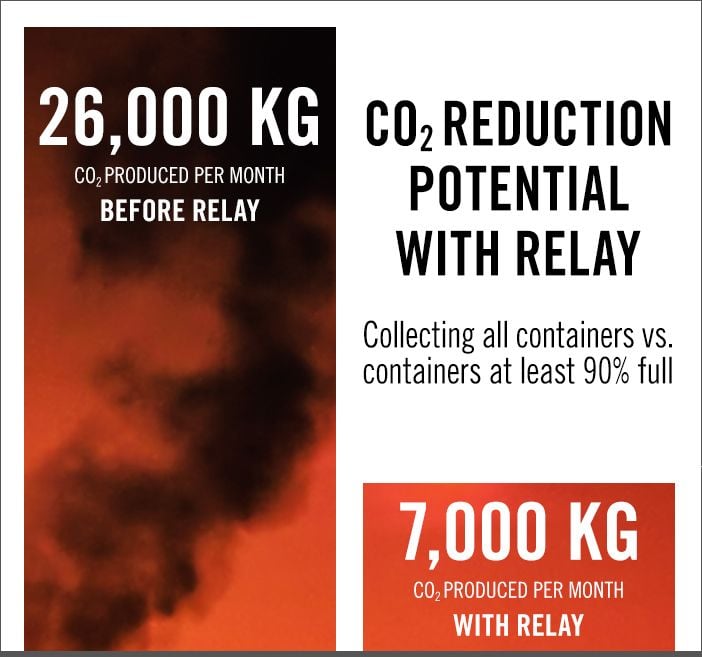
CO2 Produced per month collecting all containers vs. containers at least 90% full. Sources: Greenhouse Gas Equivalencies Calculator, US EPA. Carbon Footprint Calculator, FleetNews. City of Pittsburgh Street Division Information, Matthew Jacob Email correspondence, May 31, 2018. (Graphic courtesy Victor Stanley)
The city is also approaching the task of CO2 reduction by way of carbon sequestration from the 40,000 trees the city currently has street-side. The Relay system can enhance this initiative as well, using its environmental sensors to measure the temperature of every container within the city. When these sensors determine an area has atypically high temperatures, the city can then evaluate and determine if there is insufficient tree coverage, which would provide analytical support for planting trees there in the future.
“The smart cans allow DPW to offer better refuse services to Pittsburgh residents and neighborhood business districts, while freeing up our workers to do other work to keep the city tidy.”- Mike Gable, City of Pittsburgh Public Works Director
Pittsburgh looked to the edge of innovation to completely modernize this crucial aspect of public works, using an approach driven by real data collected from the actual city streets. With the Relay system’s data and the other technological tools at their disposal, Pittsburgh is well positioned to lead the way on two fronts – the global, ongoing battle against climate change, and the seemingly simple task of improving the way they collect trash.
Read the full report including appendix and sources online at www.victorstanley.com/
Matthew Jacob is a project manager with the City of Pittsburgh’s Department of Innovation and Performance.
Cia Carberry works in the office of Pittsburgh Mayor William Peduto.
Mike Noone is a Market Analyst and Solution Developer at Victor Stanley.
Bryan Slaughenhoupt is Vice President of Product Development and Operations at Victor Stanley.

